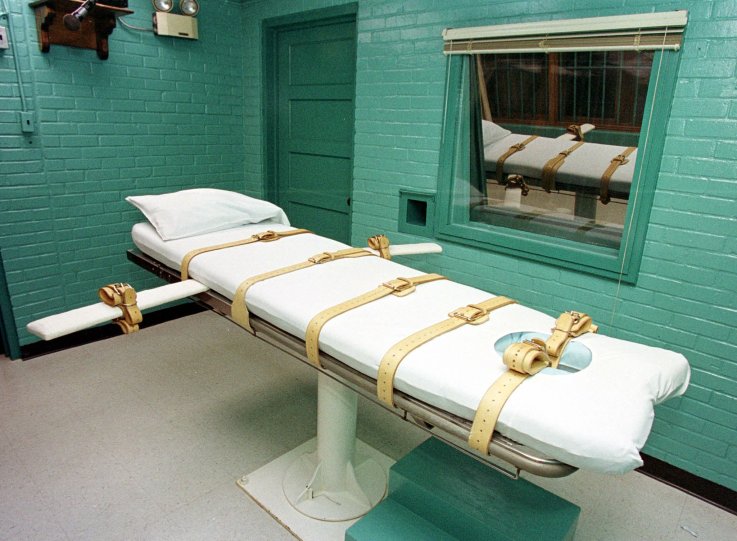The I95 Killer of Gay Men Will Meet What Ever is Out There Thursday W/A Syringe Sticking Out His Arm
BY
Gary Ray Bowles, the so-called "I-95 Killer" who murdered six gay men in the 1990s, is scheduled to be executed on August 22.
Barring a stay, he will be the 99th person executed in the state since the Supreme Court reaffirmed the use of death penalty in 1976.
Between March and November 1994, Bowles murdered six men he met up and down the East Coast. He encountered most of his victims in gay bars, offering them sex for money before strangling them and taking their credit cards and identification. His first victim, John Hardy Roberts, had given Bowles a place to stay in Daytona Beach. Police found Bowles' fingerprints and probation records at the scene of the crime. Security footage also caught Bowles trying to use Roberts' ATM card.
The murders were well-publicized: Bowles was featured on America's Most Wanted" five times and made the FBI's Most Wanted List in November 1994, three days before he was brought in for questioning in the murder of his last victim, Walter Hinton. Bowles confessed to killing Hinton and soon admitted to the other five murders.
"Each of the murders was brutal," Bernie de la Rionda, the Jacksonville prosecutor who tried Bowles, told the Daytona Beach News-Journal. "It was not an instant death, like somebody getting shot and dying from that gunshot. ... It was a life-and-death struggle."
Hinton's head had been bashed in with a 40-pound concrete block. Another victim was found with a sex toy jammed down his throat.
Bowles pleaded guilty but, at sentencing, his lawyer brought up his troubled childhood as a mitigating factor: Bowles father had died of black lung disease and he was raised by his mother and a parade of stepfathers—some of whom, he claimed, were abusive. After allegedly fighting back against one of them, Bowles left home at 14. He made ends meet as a sex worker.
In the summer of 2016, he was sentenced to death for Hinton's murder. The following year, after pleaded guilty to two more murders, he received two additional consecutive life sentences. But in 2018, the Florida Supreme Court overturned Bowles' death sentence after his lawyer successfully argued De la Rionda was wrong to introduce Bowles' homophobia as evidence.
In 1999, a second jury unanimously convicted Bowles and he was once more on death row. Now 57, he's spent the past 20 years in a 6-by-9-foot cell at Florida State Prison in Bradford County.
On June 11, 2019, Florida Governor Ron DeSantis signed Bowles' death warrant. It's the second DeSantis has signed since taking office in January. The first was for Bobby Joe Long, a Tampa serial killer who had been on death row for more than 30 years. Long was finally executed in May.
Florida has executed several notorious serial killers since 1976, including Ted Bundy, Aileen Wuornos and David Alan Gore, one half of the so-called "Killing Cousins."

Comments